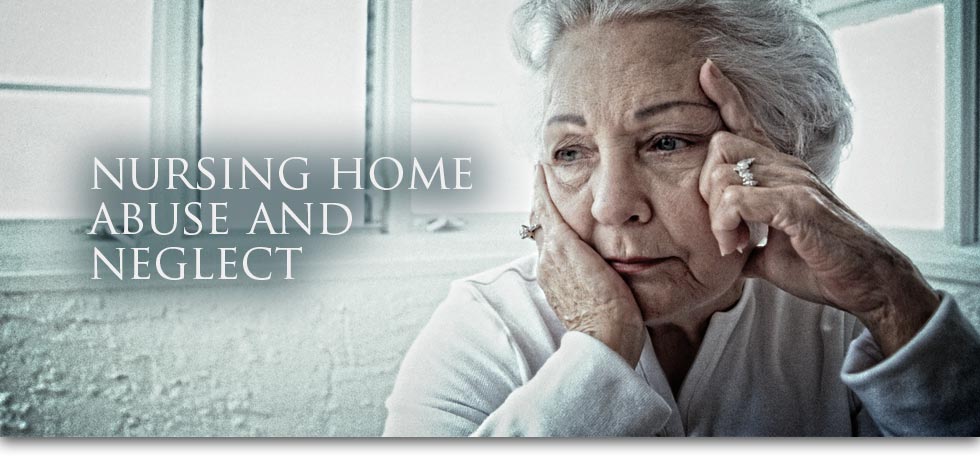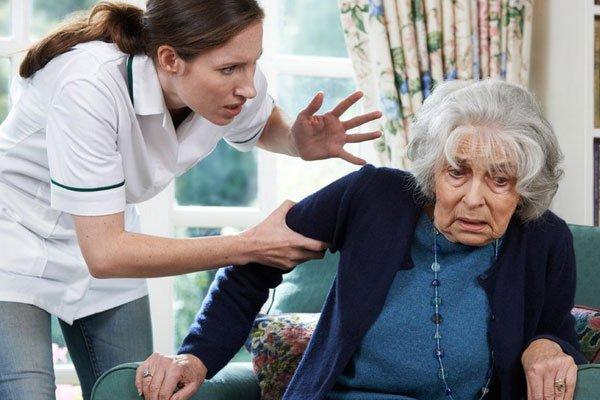Nursing Home Abuse / Neglect – A Guide for Families

Often, families reluctantly have to place their loved ones in Nursing Homes or Assisted Living Facilities (ALFs), in order to assure medical attention and every-day assistance that they are not able to provide for themselves. They expect, and are certainly entitled to, top quality care.
How do I select the best Nursing Home or Assisted Living Facility for my loved one?
Evaluate your needs to determine which nursing home is best suited for your particular situation. For example, do you need a facility to care for a loved one suffering from Alzheimer’s? Do you need dialysis machines, or, a specialized wound care center?
Ask your physician for referrals; and, speak to others such as family, friends and neighbors who have been through a similar situation. Check to see what types of medical insurance they accept. Our list of insurance terms may be helpful when reviewing their documentation.
Contact your state and ask for copies of published information, such as Nursing Home Guides and surveys.
What are the signs of Nursing Home Neglect & Abuse?
If you notice any of the following, your loved one may be the victim of abuse:
- Any open wounds or cuts
- Unexplained injuries such as broken bones, bruises, or welts
- Reports of being slapped, pushed, shaken or beaten
- Falls
- Being physically restrained to the bed or chair
- Over-medication causing lethargy or unresponsiveness
- Weight Loss
- Sudden slurred speech
- Deprivation of food or water, for any amount of time
- Emotional upset or agitation
- Extremely withdrawn and non-communicative
- Displaying unusual behavior such as sucking, biting or rocking
- Displaying behavior that is: humiliating, insulting, frightening, threatening or ignoring towards family and friends
- Wanting to be isolated from other people
- Injuries requiring emergency treatment or hospitalization

What do I do if I suspect Nursing Home Neglect or Abuse?
If you believe that your loved one is suffering from abuse or neglect, TAKE ACTION IMMEDIATELY!
The first thing you should do is CALL 911. In some circumstances, call the police. Then, remove your family member from the facility. Take him or her to another nursing home; or, if urgent care is required, get them to a hospital. You may also want to contact a personal injury attorney that can look at your loved ones case. In many instances, nursing homes can be held responsible if they are found guilty of abuse of the people they have been paid to protect and take care of. In the worst of cases, you may have a wrongful death lawsuit. In many instances, the worst offenders do not make any workplace changes until they are hit in the pocketbook.
How do I ensure my loved one is receiving high quality care?
The most important part of ensuring care is to remain involved in your family member’s life. Monitoring and observing changes in their condition is essential to ensuring they are being cared for properly.
What do I look for when checking up on my loved one?
Diet: Make sure that your family member is drinking enough water and eating well. Because nursing home CNA charting can be inaccurate, be sure to visit at mealtime to check the food, and, see if your loved one is eating. Malnutrition and dehydration can cause life threatening diseases including urinary track infections, kidney failure, and, skin breakdown that can lead to bedsores, dementia and a weakened immune system.
Weight loss: Watch closely for weight loss by your family member. Do not rely on the nursing home’s stated weight, because they may try to hide weight loss. A good place to check for weight loss is the upper arm and calves.
Dehydration: To check for dehydration, you should look at skin tone and dryness in the mouth and lips, along with pinching the skin on the forehead or the sternum. If the skin sticks together and leaves a ridge, there could be a dehydration problem.
Bedsores: If your family member is immobilized in bed or in a wheel chair, they are at risk for bedsores. On visits, ask them if they have any cuts or wounds. If they are unable to answer, be sure to check their entire body on every visit. Without proper prevention and care, bedsores can appear overnight. Common areas for bedsores are on the heels, hips and buttocks. If a bedsore is allowed to develop, it will cause serious illness .. and, even death .. to your loved one.
Toilette Use: If your family member needs assistance to use the toilet, a facility with insufficient staffing will have the motivation to put him or her in diapers, because it is less work. As a consequence, it will be very difficult to become self-regulating. This will be used as an excuse to keep your loved one in the nursing home, instead of an Assisted Living Facility (ALF).
Insist that your family member is taken to the toilet regularly. If he or she is starting to have accidents, complain that it is because the call light is not being answered, rather than it being an incontinence problem. Ask your family member, frequently, if he or she has any symptoms, such as burning urination, and dark, cloudy or foul smelling urine.
Confusion/ Dementia: If your family member starts showing signs of confusion and/or dementia after entering the nursing home, these symptoms are not just part of normal aging. They are, usually, caused by some type of disease; or, they can be triggered by malnutrition or dehydration. Insist that the facility and the doctor run blood tests to rule out disease, malnutrition and dehydration.
Rehabilitation & Exercise: Make sure that the facility is following through with any rehabilitation they have promised. Occasionally, you or someone else needs to be there while your family member is doing his or her exercises, in order to see if they are being effective.
Bathing & Cleanliness: Make sure that your loved one is fully bathed, at least three times a week. Your family member should not have any body odor or scaling skin. Check for proper nail and dental care.
Unfortunately, abuse or neglect is not uncommon in poorly run nursing homes and assisted living facilities. It is very important to look for the warning signs. In many instances, you may find out the a particular facility has been reported habitually for mistreating their patients. Pay close attention and take action if necessary.

